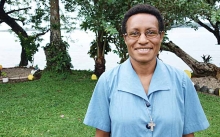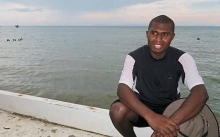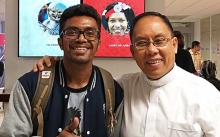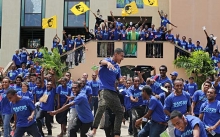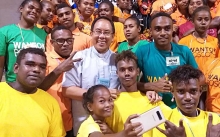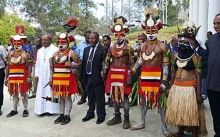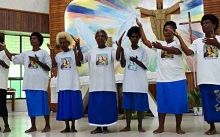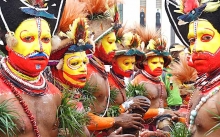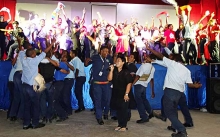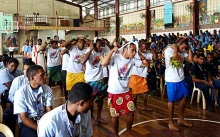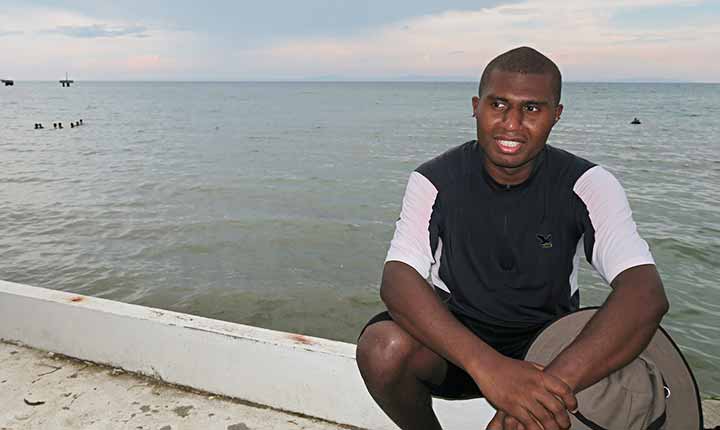
Inculturation in PNG society
By Cl. Conrad Terry Vamilat, SDB
Port Moresby, PNG, 15 Septemver 2018 -- I come from a matrilineal society in the Gazelle Peninsula of East New Britain. Matrilineal refers to a family relationship that can be traced through a female. It is not of a dowager but of the genitival hereditary. The woman inherit the land and possessions genetically from generation to generation. The matrilineal lineage is based on the premise that a “child will always know their mother but not necessarily the father”. The matrilineal line is called a ‘VUNATARAI’, a term which is derived from the two words ‘vuna’ and ‘tarai’. ‘Vuna’ means the source or reason and in this instance, the source is akin to the base or home and ‘Tarai’ means people (men, women and children). Each ‘vunatarai’ belong to a place which is their place of origin and this is usually the place upon which they settled when they arrived from across the channel. This is called a ‘MADAPAI’ (origin).
The Tolai as a Tribe of people also exist within moieties called ‘MARMAR’ and ‘PIKALABA’. These moieties transcend the ‘vunatarai’. My father comes from the MARMAR tribe while my mother comes from the PIKALABA tribe. Since the mother inherit everything, the father is first and for most head of the family. He has all the power to govern it.
My mother gave birth to five siblings. I am the third child. I have four sisters. My family is somehow religious oriented and that was the reason why they immediately allowed me to pursue religious life. Being a boy in the family requires contribution for the upkeep of the family. Parents especially needs support from a son especially when there is an only one boy in the family. The son generates an income for the family together with the father. However, my family has accepted this challenge by allowing me to be a religious.
How do we inculturate the Charism of the Society of St. Francis de Sales in the PNG culture? For sure it is a great challenge. If we would like to inculturate it in the Tolai culture, we will meet difficulties. The Tolai group of people form one third of the population of East New Britain, the other two thirds are Bainings and Pomio. This is only the tiny portion of the total population in Papua New Guinea. PNG has more than 800 different languages and each has its own customs and practices. These make it difficult for inculturation. However, the process of inculturation is ongoing. It will take time. Often we think that it is easy to inculturate this charism to our culture. Many aspirants and former local Salesians left the congregation because there has not been a common understanding between them and expatriate confreres. However, some values would possibly the basis of inculturating the Charism of the Society of St. Francis de Sales into the Melanesian culture particularly in the Tolai culture.
The values that I treasure the most are community life and initiation. These values were practised even before the missionaries arrived in our land. The community life in particular, relationship is common in my society. Relationship with my family and extended family, neighbours, societies and clans/tribes. Security and decision-making are effective if there is an established relationship. Take for example; in the past a son/daughter wants to be a religious, she/he has to consult his family, extended family and clan leaders. The consultation is a sign of respect for the elders and at the same time is the result of a good relationship.
The bride price in the Tolai society is also a way of establishing relationships between two parties. It is more of exchange of gifts. It is win-win agreement. If the man wants to pay bride price for the woman, then the woman will prepare cooked and raw food to equivalent the price the groom will pay for her. It is not a one sided agreement. The Tolai community life strife for peace, justice and security in their society.
The young boys would stay in the ‘TARAIU’ (Kuanua or Tolai word means; ‘forbidden place’) to learn skills and good behaviours. This place permits only young and elderly men. They are being taught how to live as good citizens in the society. It only happens once or twice a year. Elderly leaders would teach young boys. Apart from learning skills and behaviours, they also do certain rituals of initiation to the new members who decided enter the house with the consent of their parents. They would become the role models of our society. As a community we do things that are beneficial to our own society. As a result, there is harmonious relationship in the society. Mothers usually teach their daughters at home.
These values can be translated into a religious community and our Salesian context. The Salesian community life is very essential when it comes to community apostolate. To be in a community is not an individual wish, however, it is the plan of the Almighty who calls each Salesians to live in a community. Community life is the strength of the Salesians to do their apostolate.
The East New Britain style of bride price can be seen in the light of a son who enters religious or priestly life. There is a hope that the family of the son/daughter would gain benefit. What is this benefit? Transformation of the family is the benefit of the son enters religious life. Don Bosco said, "Jesus takes the place of the person in his home and his family".
The traditional initiation in the Tolai society is similar to a religious initiation. The son, who enters the seminary, prepares himself to be a good and worthy religious or priest. The formation that he receives is not for him but for the benefit of the church and the society. Formation however takes more than 10 years, unlike at the Tolai house, which is less than a month. In our formation house, we are transformed to follow Christ.
Young people, especially Tolai boys, who feel they have a vocation, the three scenarios that I have shared can be applicable to you. I have shared this because I have experienced it.
“Salesian Life; Simply Da Best”.
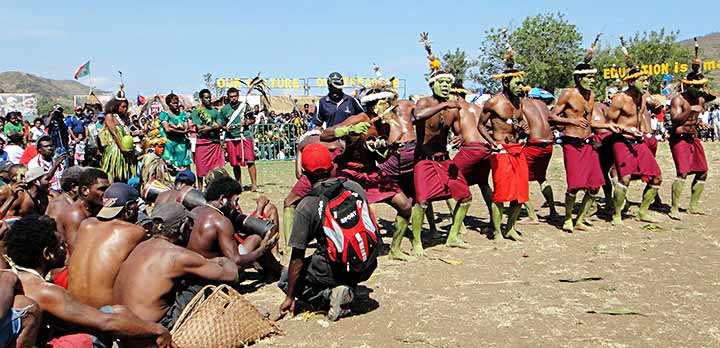
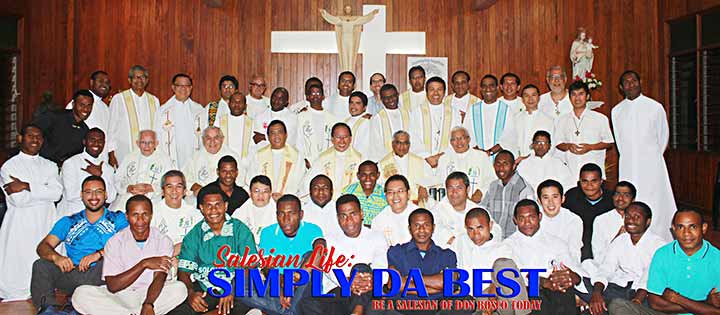
 4855(IV)_Following the Lord’s call the Don Bosco way
4855(IV)_Following the Lord’s call the Don Bosco way
 4848(II)_Missionary Experience as Discernment
4848(II)_Missionary Experience as Discernment
